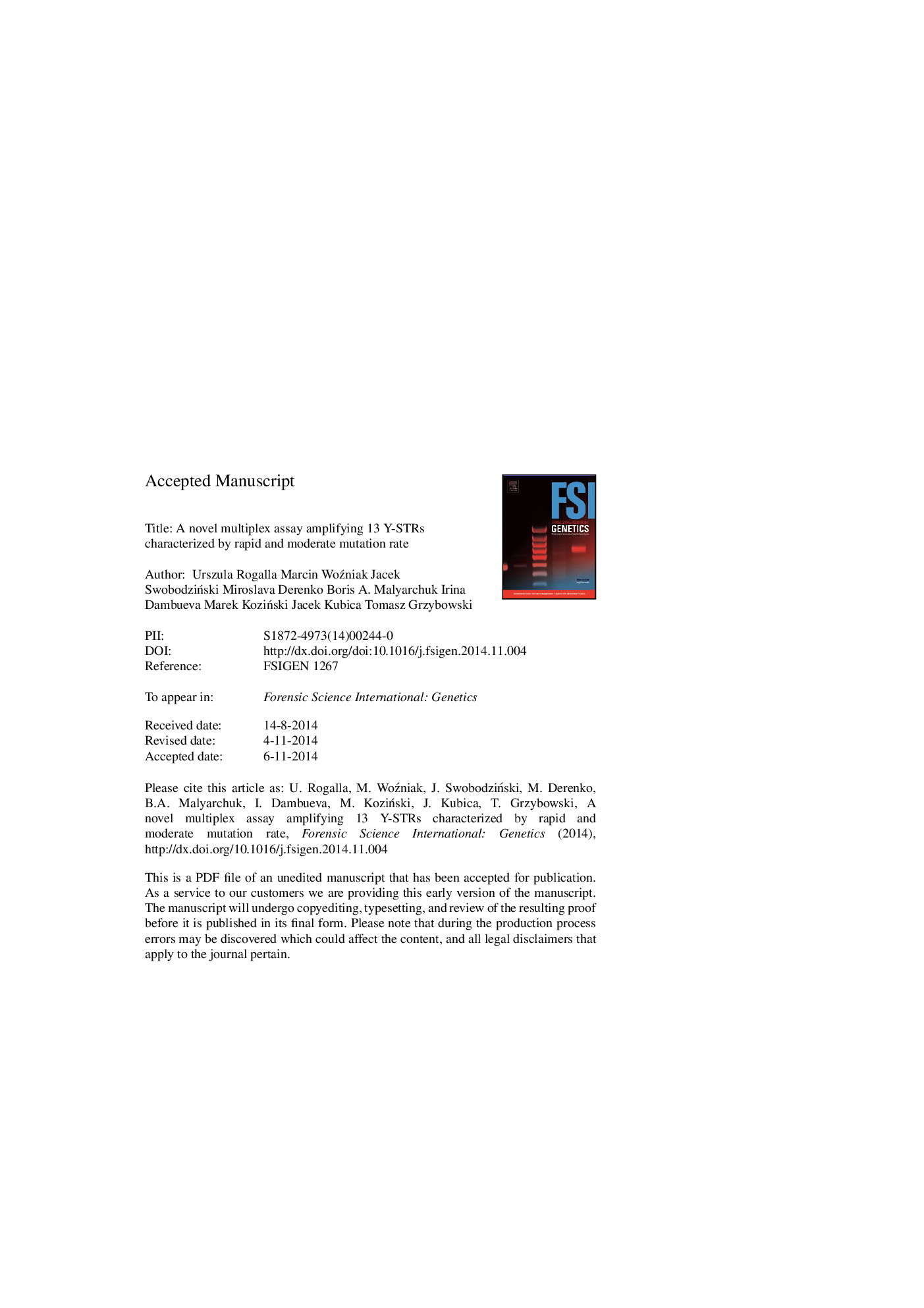| Article ID | Journal | Published Year | Pages | File Type |
|---|---|---|---|---|
| 6553842 | Forensic Science International: Genetics | 2015 | 27 Pages |
Abstract
As microsatellites located on Y chromosome mutate with different rates, they may be exploited in evolutionary studies, genealogical testing of a variety of populations and even, as proven recently, aid individual identification. Currently available commercial Y-STR kits encompass mostly low to moderately mutating loci, making them a perfect choice for the first two applications. Some attempts have been made so far to utilize Y-STRs to provide a discriminatory tool for forensic purposes. Although all 13 rapidly mutating Y-STRs were already multiplexed, no single assay based on single-copy markers allowing at least a portion of close male relatives to be differentiated from one another is available. To fill in the blanks, we constructed and validated an assay comprised of single-copy Y-STR markers only with a mutation rate ranging from 8Â ÃÂ 10â3 to 1Â ÃÂ 10â2. Performance of the resulting combination of nine RM Y-STRs and four moderately mutating ones was tested on 361 father-son pairs and 1326 males from 9 populations revealing an overall mutation rate of 1.607Â ÃÂ 10â1 for the assay as a whole. Application of the proposed 13 Y-STR set to differentiation of haplotypes present among homogenous population of Buryats resulted in a threefold increase of discrimination as compared with 10 Y-STRs from the PowerPlex® Y.
Related Topics
Life Sciences
Biochemistry, Genetics and Molecular Biology
Genetics
Authors
Urszula Rogalla, Marcin Woźniak, Jacek SwobodziÅski, Miroslava Derenko, Boris A. Malyarchuk, Irina Dambueva, Marek KoziÅski, Jacek Kubica, Tomasz Grzybowski,
